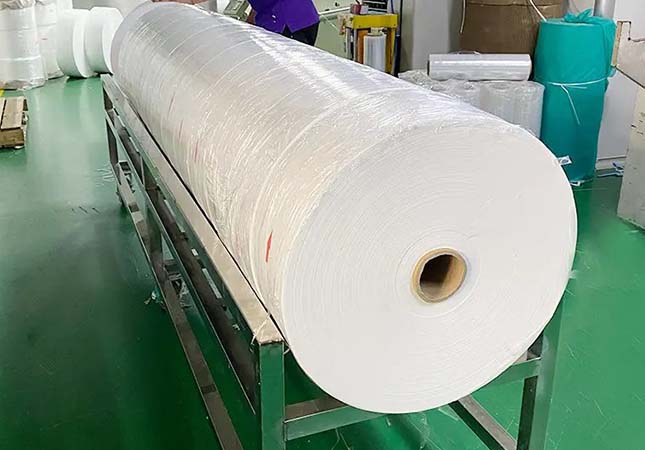The textile industry has come a long way since its inception, with advancements in technology playing a pivotal role in transforming the way textiles are manufactured. Textile machinery has revolutionized the industry by improving productivity, enhancing efficiency, and expanding the possibilities of textile production.

Significance of Textile Machinery
1. Increased Production Efficiency
Textile machinery has significantly boosted production efficiency in the industry. Automated machines, such as spinning frames, looms, and knitting machines, have replaced manual labor, allowing for faster and more accurate production processes. These machines can handle large volumes of raw materials, streamline production workflows, and reduce human error. With the help of textile machinery, manufacturers can meet the increasing demand for textiles in a cost-effective and timely manner.
2. Diverse Range of Textile Products
The versatility of textile machinery has paved the way for the creation of a wide range of textile products. Different types of machinery are designed to produce various textiles, including fabrics, yarns, threads, and non-woven materials. From delicate silk fabrics to sturdy industrial textiles, textile machinery enables manufacturers to cater to diverse market demands. By adjusting machine settings and parameters, textile machinery can produce textiles with varying textures, colors, patterns, and finishes, providing endless possibilities for creativity and innovation.
3. Enhanced Quality and Consistency
One of the significant advantages of textile machinery is its ability to deliver consistent quality in textile production. The precision and automation provided by these machines ensure that each textile produced meets strict quality standards. By eliminating human error and inconsistencies that often occur in manual processes, textile machinery enhances the overall quality and uniformity of the final products. This is crucial for industries that require consistent textiles, such as fashion, automotive, and medical sectors.
4. Sustainable Textile Manufacturing
In recent years, sustainability has become a key focus for the textile industry. Textile machinery plays a vital role in promoting sustainable manufacturing practices. Advanced machinery incorporates energy-efficient technologies, reducing power consumption and minimizing environmental impact. Moreover, modern machinery allows for the efficient use of raw materials, reducing waste in the production process. From recycling systems to eco-friendly dyeing and finishing techniques, textile machinery enables manufacturers to adopt sustainable practices and contribute to a greener future.
5. Technological Advancements
Textile machinery continues to evolve with advancements in technology. From computer-controlled machines to intelligent automation systems, the integration of digital technologies has revolutionized textile manufacturing. Computer-aided design (CAD) software enables designers to create intricate patterns and designs with precision. Robotics and artificial intelligence (AI) are also making their way into textile machinery, improving productivity and expanding the possibilities of automation. These technological advancements not only enhance efficiency but also open doors for innovation, customization, and personalization in the textile industry.
6. Improved Worker Safety and Comfort
Textile machinery has had a positive impact on worker safety and comfort. The automation of labor-intensive tasks reduces the physical strain on workers, minimizing the risk of injuries associated with repetitive motions. Additionally, the implementation of safety features and protocols in textile machinery ensures a safer working environment. By prioritizing worker well-being, textile machinery contributes to a more sustainable and ethical textile industry.
Conclusion
Textile machinery has revolutionized the textile industry, driving efficiency, quality, and sustainability. With its ability to increase production efficiency, produce diverse textiles, enhance quality and consistency, promote sustainability, and integrate technological advancements, textile machinery empowers manufacturers to meet the demands of a rapidly evolving market. As technology continues to advance, the future of textile machinery holds even more exciting possibilities, shaping the textile industry for years to come.




